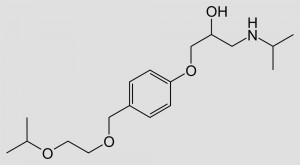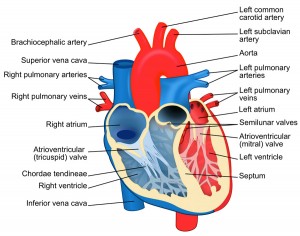We commonly see anxiety disorder as a psychological condition that has physical effects. People affected with this condition show symptoms such as palpitation, struggles in breathing, and cold sweat. However, a physical condition such as Mitral Valve Prolapse (MVP) may also trigger anxiety-like symptoms.
MVP is often connected to anxiety disorder. Learn how they correlate so you can manage your condition and make a good decision if you experience the symptoms.
Definitions and Symptoms of MVP

Mitral Valve Prolapse is a condition where the valve of the heart’s left chamber (which supplies blood to the left ventricle) collapses. This condition is quite rare and affects around two to three percent of global populations. This condition generally does not cause serious consequences, and people who have it often have no clear symptoms.
There are cases where people with MVP exhibit specific symptoms, such as heart murmur, palpitations, cold sweat, swollen feet and hands, and shortness of breath. Despite the similarities with heart attack symptoms, MVP does not increase the risk of severe heart conditions or death. However, people with MVP needs to regularly check with a doctor, since a severe condition may lead to mitral valve regurgitation and congestive heart failure.
Similarities between Anxiety Disorder and MVP Symptoms
Mitral Valve Prolapse is often connected with anxiety disorder because of similarities in their symptoms. According to the Anxiety and Depression Association of America (ADAA), anxiety disorder is a psychiatric disorder associated with several conditions, such as panic disorder, panic attack, extreme phobia, and social anxiety. People with this condition face extreme fear and anxiety that stop them from performing normally in daily life.
Anxiety disorder is accompanied by physical symptoms, which share similarities with Mitral Valve Prolapse. Some physical symptoms of anxiety disorder that mimic MVP are palpitations, cold sweat, dizziness, and shortness of breath. These usually happen when the affected person is faced with things that trigger his or her anxiety.
With such overlaps in symptoms, it is no wonder that many people connect anxiety disorder with MVP. It also made people think that MVP is the main cause of anxiety disorder, even though experts still yet to come up with such a conclusion.
How Anxiety Disorder and MVP Connect
It is not clear whether MVP causes anxiety disorder or not. However, we can count on the psychological factor of the disease. Mitral Valve Prolapse symptoms are similar to the beginning of a heart attack, although it is usually not as dangerous. Since symptoms of a heart attack often become general knowledge, people who experience these signs may become anxious about their condition. This can lead to extreme anxiety and even fear of their physical conditions.
Another unconfirmed theory is related to blood flow to the brain. It is thought that Mitral Valve Prolapse affects the way the blood pumped to the brain, affecting the brain chemistry. However, there are still no studies that can prove this theory, so we cannot depend on it for an explanation.
Despite the still-unclear connections between anxiety disorder and MVP, experiencing their symptoms are unpleasant experiences. Regardless of your condition, make sure to take the right steps in managing MVP symptoms, along with the anxiety that may come with it.
Suggestions and Treatments for MVP-based Anxiety

Regardless of the origins, an anxiety attack is an unpleasant situation that must be faced by some people with MVP. Just like anxiety disorder, MVP-based anxiety attacks can be terrifying and prevent people from performing normally in daily life. If you have MVP, here are some suggestions to reduce the anxiety part:
Breathing exercise
Breathing exercise, which includes deep inhale-exhale and rhythmic breathing technique, is a simple technique to reduce anxiety. You can do it by inhaling deeply through the nose and exhaling through the mouth. Inhale until your stomach distended, and make sure to produce sound when exhaling. Do this several times during the anxious episodes.
Prescribed medications
MVP patients with persistent anxiety issues often get prescribed medications to solve the anxiety. Common medications to prescribe include antidepressants, benzodiazepine (“benzo”) anxiety medication, antihistamines, and anticonvulsant.
Beta-blocking drugs
Beta-blocking drugs are general treatments for angina, but they can also help with MVP-related anxiety. Beta-blockers inhibit your fight-or-flight response (which is increased drastically during anxiety episodes), reducing symptoms such as cold sweat, palpitations, and quick respirations.
Psychotherapy
Psychotherapy helps anxiety disorder sufferers to face the main cause of their symptoms. People with MVP are often suggested to see the shrink, so they can manage the anxiety that comes from having this condition.
These are not permanent solutions for MVP or anxiety disorder symptoms, but they can help you managing them whenever they appear and disturb your daily activities.
Conclusion
There is no clear proof that Mitral Valve Prolapse can cause anxiety disorder, but both share symptoms that may overlap or appear at the same time. While MVP is not dangerous, it can affect your life, and so does anxiety disorder. Managing them using prescribed medications, breathing exercises, regular check-ups, and consulting with professional will help you get by.




Leave a Reply